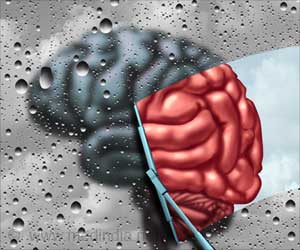The benefits of cognitive behavior therapy (CBT) in overcoming depression can be assessed using brain imaging
The benefits of cognitive behavior therapy (CBT) in overcoming depression can be assessed using brain imaging according to researchers at the University of Pittsburgh School of Medicine. In a study published in the April issue of the American Journal of Psychiatry, the official journal of the American Psychiatric Association, researchers say that being able to predict the response to therapy could be a valuable tool for doctors.
"For depression, there is no single medication or therapy that has been found to work as a primary treatment for most patients," said Greg J. Siegle, Ph.D., assistant professor of psychiatry, University of Pittsburgh School of Medicine. "We found that people with depression who have increased activity in one area of the brain and decreased activity in another in response to emotional stimuli are more likely to respond to a specific treatment--cognitive therapy." He added that if the findings were found to be true then researchers would be able to predict what therapies will be most effective for patients thus "bypassing the lengthy trial and error process that is often necessary to find the right treatment." Using functional magnetic resonance imaging (fMRI), researchers were able to identify areas of the brain that were active or inactive when exposed to a negative stimulus. While the procedure was in progress, the researchers gauged the reaction of 14 depression-affected patients and 21 control subjects to emotional words. The patients then underwent CBT for 12 weeks as part of a larger clinical trial. It was found that the second time around, 9 of the depressed patients had decreased activity in a region of the brain called the subgenual cingulate cortex. "The amygdala helps us to recognize things as being emotional. In some people with depression, the amygdala doesn't turn off as fast as it should after it recognizes something as being negative. The subgenual cingulate cortex regulates emotions and plays a part in turning the amygdala on and off," said Dr. Siegle. "If the amygdala doesn't get 'turned off' in a person with depression, when exposed to negative information, the person may ruminate, going over this information again and again." CONTACT: Jocelyn Uhl Duffy, UhlJH@upmc.edu Lisa Rossi, RossiL@upmc.edu PHONE: (412) 647-3555 FAX: (412) 624-3184 Source: Eurekalert







